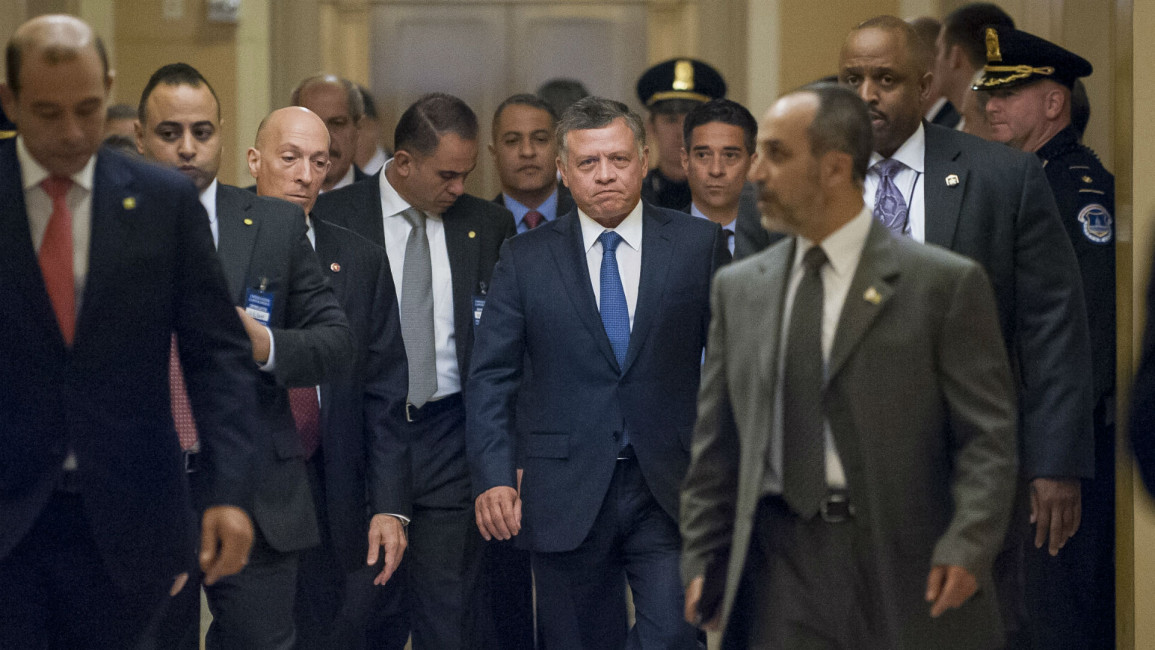Jordan's king accused of unprecedented power grab
Jordan's King Abdullah was granted sweeping new powers by ministers on Monday, in a move seen as a step back for democracy in the kingdom.
Abdullah now legally wields absolute power, including the appointments of military, political and legislative leaders, after a constitutional amendment was agreed by lawmakers.
All laws put forward by parliament can now be vetoed by the men appointed by the king, while
Jordan's powerful military and intelligence agencies will be directed by faithful allies of the royal family.
Authoritarianism
Jordan's news agency announced that the cabinet - chaired by Prime Minister Abdullah Ensour - approved the amendments to Article 40 of the constitution.
"The King shall exercise the powers vested in him by Royal Decree," the clause now reads. "Every such Decree shall be countersigned by the Prime Minister and the Minister or Ministers concerned."
Now the king holds the power to appoint the crown prince, prince regent, senate president and members, constitutional court president and members, and the president of the judicial council.
 |
The amendments are a step by the royal palace to establish a legal basis for the great powers the king has over judicial, executive and legislative [matters]. |  |
Abdullah will also be empowered to choose the army commander, intelligence chief and director of the gendarmerie.
Although the king - and his late father King Hussein - have traditionally retained important powers, this is the first time his absolute rule has been codified in law.
Democracy bound
The news has also dashed hopes that rule by Abdullah - seen as a relatively outward-looking and progressive monarch - would usher in greater constitutional powers for parliament.
"The amendments are a step by the royal palace to establish a legal basis for the great powers the king has over judicial, executive and legislative [matters]," said Jordanian journalist and activist Nabeel Ibrahim, who used a false surname to protect his identity.
"It carries an important message after the Arab revolutions failed to reach the establishment of full democratic system. There is a general sense in Jordan that the system is exploiting the failure of Syrian rebels to extend their grip on the country, as well as tie-in with the current restrictions to the Muslim Brotherhood."
Jordan has clamped down on the Islamist organisation in recent years, after it once enjoyed close relations with the monarchy. The move followed the collapse of the Muslim Brotherhood movement in its spiritual home, Egypt.
Meanwhile, the spread of extremist groups in Syria, and rising nationalist sentiments in Jordan, have created a backlash against political Islam, particularly among the East Bank community.
Jordan has made other constitutional changes in recent years.
In 2014, an amendment to the country's law sparked controversy after it granted the king authority to appoint or dismiss army and intelligence chiefs. These powers had previously been the responsibility of the prime minister or most relevant minister.



